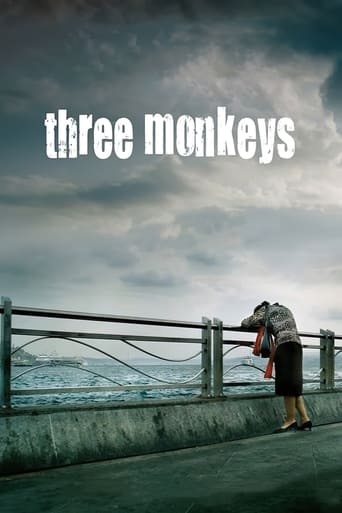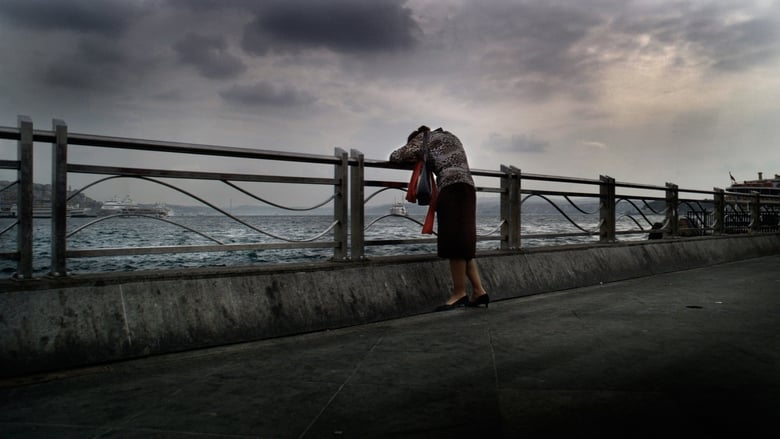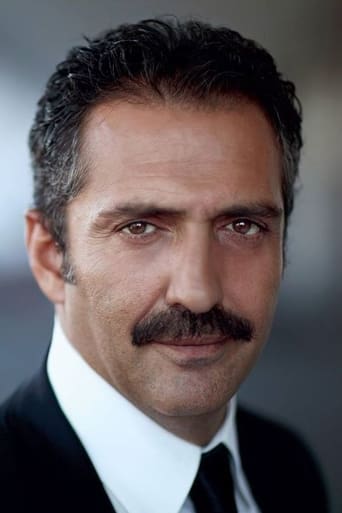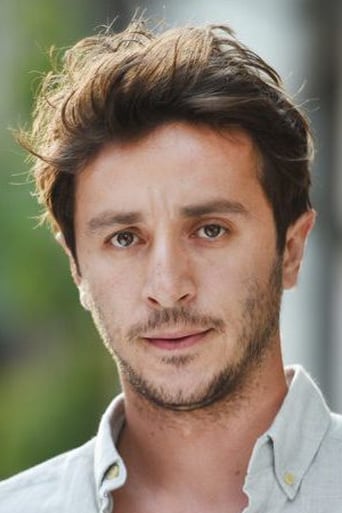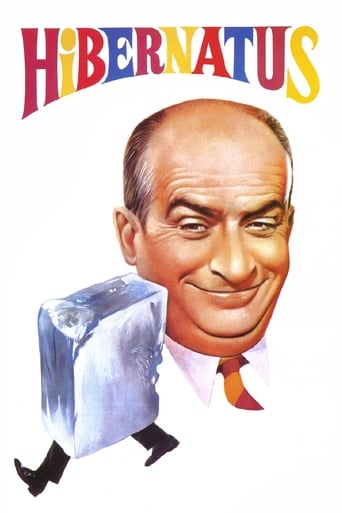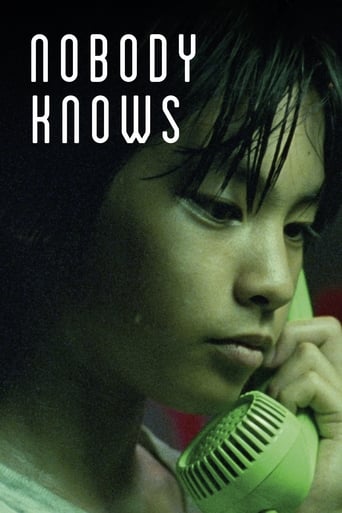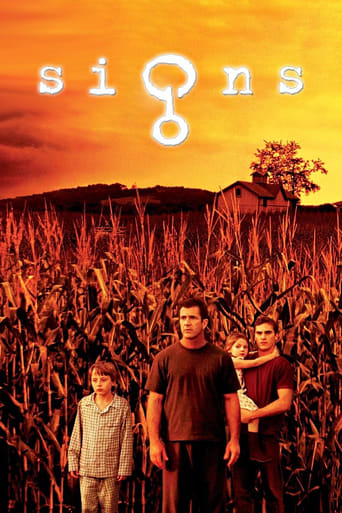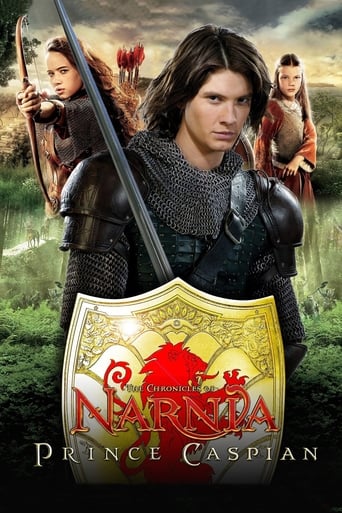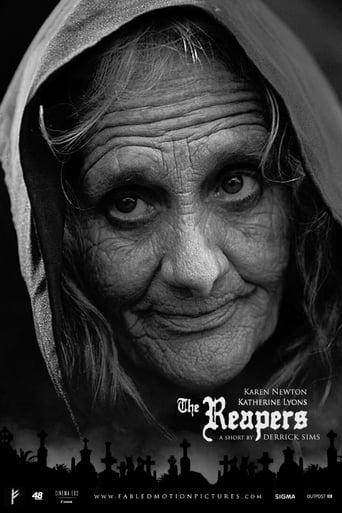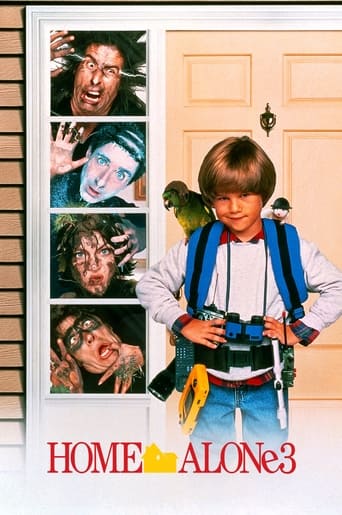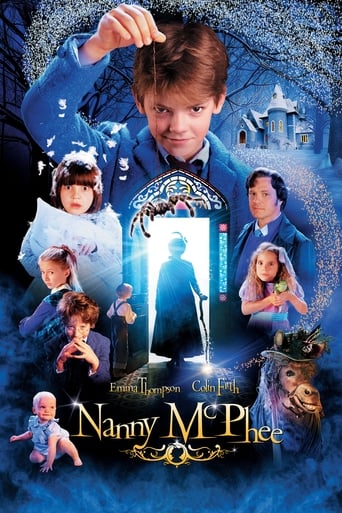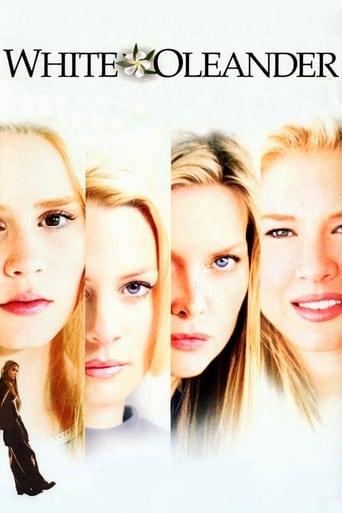Three Monkeys (2008)
A family battles against the odds to stay together when small lies grow into an extravagant cover-up. In order to avoid hardship and responsibilities that would otherwise be impossible to endure, the family chooses to ignore the truth, not to see, hear or talk about it. But does playing “Three Monkeys” invalidate the truth of its existence?
Watch Trailer
Free Trial Channels
Cast


Similar titles
Reviews
Brilliant and touching
A-maz-ing
It's a feast for the eyes. But what really makes this dramedy work is the acting.
This film is so real. It treats its characters with so much care and sensitivity.
There may not be much dialog in this, but that's offset by a desperation that is anything but silent. In addition, this film is almost always shot in the most grimy light; so as one reviewer already wrote you have the recipes for a "miserabilist's" delight.Unlike that reviewer though, I was quite captivated by this. Some of it surely was the lure of a look into a foreign culture, granted a somewhat lurid look. Still the poverty they are trapped in comes with a fantastic view, and the constant flow of wind helped to keep a somewhat fresh feeling to the trapped dwelling for the main family. I supposed that wind is to remind us of forces we cannot see and we cannot control but yet are constantly at play.I also think the casting was crucial here, via the dual nature of the faces. The son who wanting to project street tough, often looks like a sheepish 13-year old. The father whose macho exterior belies the fact that he's powerless. And the mother, who was a tremendous choice, the make-up and lighting help to accentuate that she is worn-out, but the glimmer of her beauty in decline and her desire for some joy to shine out of her tired eyes make her as stark a contrast as the lighting in the film. Her cell phone ring cries out for her, a long gone Turkish love pop song souring.And I'm leaving off Ercan Kesal as the political functionary who connects all three as each member of the family makes a bad decision involving him. His weasel-y nature is communicated also without words.I like that the filmmaker does not need to cement the unity of this family with specific on-screen action, even as their mistakes push the family towards fragmentation. Blood remains thicker than water in every nation, although an aquatic apparition is summoned. It connects them but does it also condemn them to fragmentation? A film about scary sacrifices in gorgeously ghastly light.
There are long longeurs of people brooding that go on forever. Many scenes seem to play-out in slow-motion depression. The plot is basic enough - a politician swindles his driver to take the fall for a fatal accident. The driver goes to jail – the drivers' wife falls for the politician, the son of the driver finds out about his mother and when the driver is released from jail he suspects that not all is kosher. The family dissolves into a full blown depression and they speak in monosyllables to each other. There is even some science fiction when a long dead son starts miraculously appearing. I didn't quite get this part but it was pretty eerie!Really it's not that there is no empathy – but everything is so dreary that it just weighs you down. One wonders if there is any point to it all – I didn't see any. It's like an old Ingmar Bergman that has been transported to Turkey.
A family is dislocated when small failings become extravagant lies. The film opens as a wealthy businessman, Servet, running a campaign for the upcoming election, is driving in his car alone and sleepy, struggling to keep his eyes open. Seconds later he hits and kills a pedestrian in the middle of the road. Servet panics when another car with a couple inside approaches. He sneaks away. Eyüp, a man living in a slum at Yedikule neighborhood in İstanbul, with his wife and only son, is the driver of Servet. He wakes up in the middle of the night with his cell phone ringing. It's his boss, telling Eyüp to meet him immediately. Shivering in shock, Servet explains the current events to his driver. His excuse is if the fatal accident comes out in press it would terminate his political career, so he proposes Eyüp to take over the penalty and stay in prison for a brief period of time in exchange for a lump sum payment upon his release, whilst still paying his salary to his family so they can get by. Eyüp accepts the deal. An unspecified time passes, summer arrives, and Eyüp's son İsmail fails to enter college again. His mother, Hacer, who works in the catering division of a factory, starts worrying about her son after unpleasant events, and tries to convince him to get a job. İsmail suggests driving children between home and school but of course they don't have any financial source for this kind of an enterprise. İsmail asks his mother to request an advance payment from Servet without consulting Eyüp. Hacer meets with Servet, in his office after the election (which he lost), and requests the money. After Hacer leaves the office and starts waiting for a bus at the stop Servet persuades Hacer to accept a lift from him back to her home. More unspecified time passes, and İsmail intends to visit his father. Things take a poor turn when he finds his mother having an affair with Servet. İsmail stands passive. After serving nine months in prison, Eyüp is released. He senses things are "a little peculiar" inside his home. Hacer is in love with Servet and insists on maintaining their affair. Servet disagrees. That night, Hacer and Eyüp are invited to the police station and informed that Servet has been murdered. Police officers interrogate the two and Eyüp finds out that Hacer was cheating on him. He denies knowing anything about it. İsmail confesses to his mother that he murdered Servet. Eyüp calms down when he pays a visit to a mosque. Afterwards, Eyüp goes on to speak with a very poor man who works and sleeps inside a tea house in the neighborhood. Eyüp makes the same proposition to the poor man, Bayram, that Servet made to him: to claim the crime committed by his son. Bayram agrees. The last scene shows Eyüp at his home's balcony, staring at the Marmara Sea, and along with thunder it starts to rain.
As a kind of cultural globalization takes over world cinema, one should be grateful for directors such as the Hungarian Béla Tarr, the Romanian Cristian Mungiu, the Iranians Abbas Kiarostami and Bahman Ghobadi and the Turkish Nuri Bilge Ceylan who keep alive a personal, regional and stylistically individual form of film-making. Their work is never likely to become widely popular at home or abroad, but they're beacons of hope for the future of a troubled art.A photographer by profession, Ceylan turned to film-making in the mid-90s and works largely with non-professional actors and small budgets. He belongs in the tradition of Tarkovsky, Bergman, Antonioni, Angelopoulos and other masters that seemed in the 60s and 70s to be on the point of becoming a new or, at least, parallel mainstream but has now been marginalised. His new film, The Three Monkeys, like its two predecessors, won a major award at Cannes, in this case the prize for best director, and it begins with that familiar dramatic device for the creation of tension, guilt and dangerous consequences - the hit-and-run accident.Here, a man kills a pedestrian at night on a country road. It transpires that he is a politician, Servet, and in order for the event not to affect a forthcoming election he bribes his driver Eyüp, who wasn't with him on this occasion, to take the rap. He'll go on getting paid during his nine-month sentence and at the end will receive a decent pay-off.The title is a reference to the Sino-Japanese image of the three wise monkeys who see no evil, hear no evil, speak no evil, suggesting this film is a moral fable about the consequences of evasion, corruption and suppression. Servet thinks he's doing what's best for his party and the country: he's a supporter of Prime Minister Erdogan and the occasion is the 2007 general election that ended in a landslide victory. Eyüp believes he's acting like a good servant, but, more important, he's getting the money that will get a better home for his handsome wife Hacer and provide for the education of his teenage son Ismail.Nothing good comes of these actions. One way and another, everyone's life is affected, indeed in some measure destroyed, but like much else in the film the judgments are left to the viewer. Are we dealing with national problems of widespread social corruption, with the weaknesses of a set of individuals or the operation of a malignant fate of a kind that stalks us all? From the start, Ceylan draws us into the very narrative fabric. In the opening scene, using silence, long takes, available light and dramatic compositions, he makes us ask questions about what we are seeing. Who is this man? What has he done? How will he react? There are long gaps in time between individual sequences and seemingly important facts are never made plain.Ismail comes home with a badly cut hand and a bruised face, but he never reveals to his mother, or to us, whether these wounds came from brawling or from political demonstrations. They have the effect, however, of persuading her to visit the politician and seek an advance on the bribe to buy a car for the boy. This in turn leads to an affair, which is only discovered when Ismail returns home early to find his mother making love to Servet. When Eyüp emerges from jail, he's furious about the car and his suspicions over his wife's infidelity seem confirmed by a message on her cell phone. For most of the film, the images are desaturated, but during the scene of reunion, Hacer is wearing a red slip, which both excites her husband and drives him to violence.In the family's background is the death of another son, some 15 years earlier, and his father and surviving brother are haunted by visions of this loss. In the future lies a repetition of the incident that launches the film, only here the conspiracy is initiated by Eyüp. Though perhaps not quite as good as Climates, Ceylan's last picture, this is a film of formidable power that sticks in the mind.Two sequences in particular stand out. In one, the politician rejects the obsessed Hacer with great brutality, but the camera is placed nearly 50 yards away across a field. In the other, the film's closing long shot, the husband stands on the balcony of their ramshackle apartment block to the south of Istanbul, his back to the camera, looking out over the Sea of Marmara as an electric storm begins to stir.

